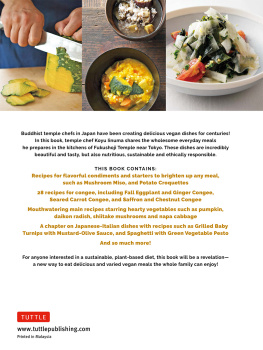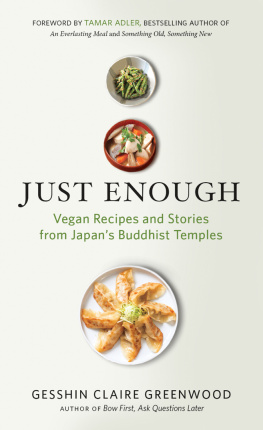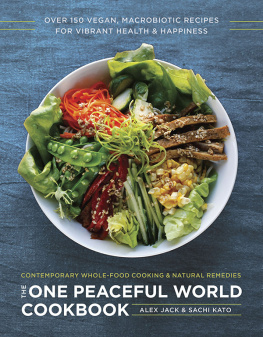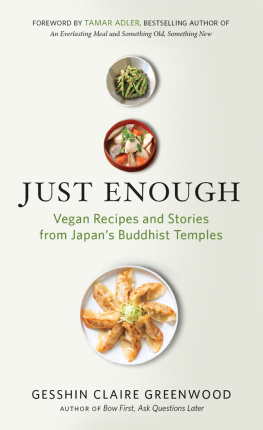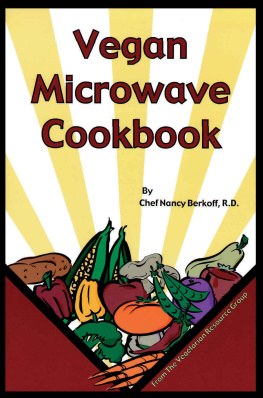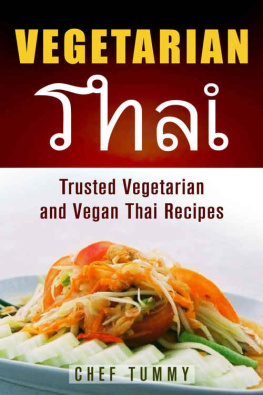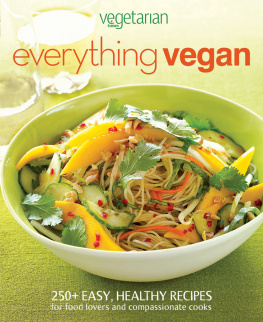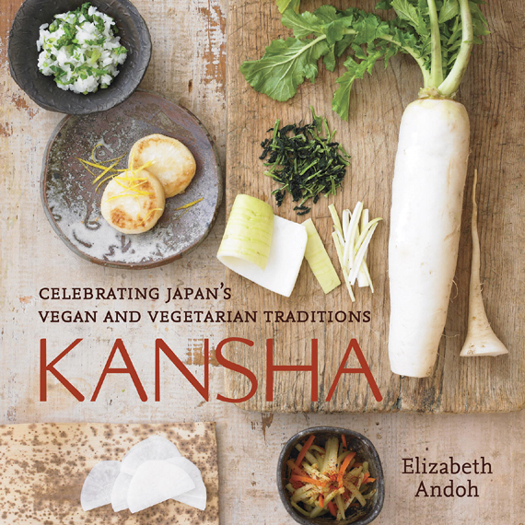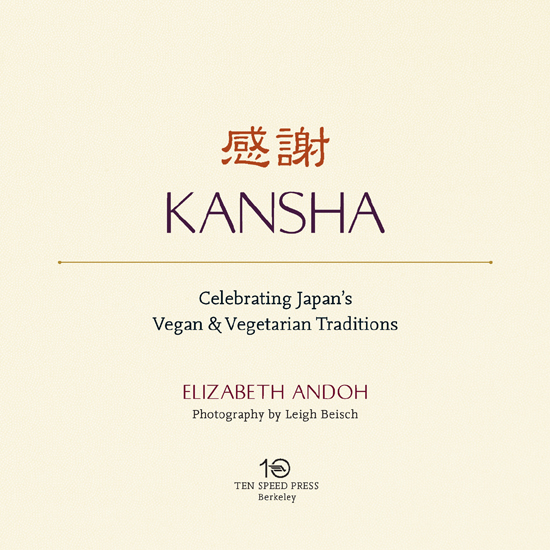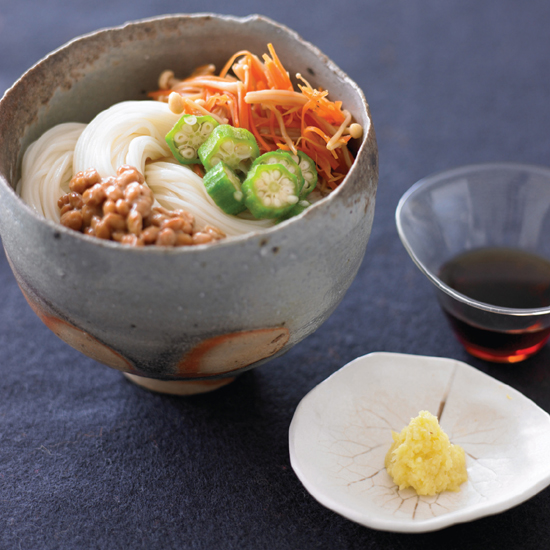All rights reserved.
Published in the United States by Ten Speed Press, an imprint of the Crown Publishing Group, a division of Random House, Inc., New York.
www.crownpublishing.com
www.tenspeed.com
Ten Speed Press and the Ten Speed Press colophon are registered trademarks of Random House, Inc.
The publisher and author would like to thank ceramic artists Catherine White, Warren Frederick, and Romig Streeter for the generous loan of their work.
CONTENTS

ACKNOWLEDGMENTS
THE THEME OF THIS BOOK is kanshaappreciationand I use the word here to express my deep gratitude to those who worked with me on this project.
From the start, I saw Kansha as a collective, cooperative undertaking and sought like-minded others to join me in creating a different sort of cookbookone that would encourage and enable readers to experience kansha cooking in their own kitchens as they prepared their daily meals and shared nourishment with others. Although the specific recipesand the guidance I provide in making themare deeply rooted in Japanese food traditions, I believe that the notion of kansha is universal in its appeal and its application.
Lisa Ekus-Saffer, exemplary literary agent, fervent advocate, and enduring ally, patiently helped me hone my proposal and place the Kansha project with Ten Speed Press. Publisher Aaron Wehner, whose superb editorial skills had enabled me to bring forth Washoku five years ago, now paired me with Dawn Yanagihara. From our first exchange of e-mails I knew she was everything I wanted my new editorial partner to besharp and savvy, precise but patient, dynamic and determined. In turn, Dawn made sure that the same terrific team that worked on Washokuart director Toni Tajima, copy editor Sharon Silva, proofreader Karen Levy, indexer Ken DellaPentawould again contibute their talents to Kansha. All struggled with my densely cross-referenced manuscript, steamlining and formatting it into the elegant yet practical book you hold in your hands. Such masterful work, and so well coordinated by Dawn! She and I practiced our own editorial version of kanshaappreciating nature (the time difference between California and Japan)cleverly using it to our mutual advantage (as one worked, the other slept). Luckily, living in Japan gave me the advantage of extra hours to meet deadlines!
Leigh Beisch is also a kindred spirit in kansha: she works entirely, creatively, with the light that nature provides (a true challenge on drizzle-filled, winter-shortened San Francisco days). Her able and affable crew, studio manager Kate Robison and digital technologist (and hand model!) Sean Franzen, enabled our photo shoot to run smoothly. Styling the food with artistry, cultural sensitivity, and technical accomplishment, Karen Shinto, ably assisted by Fanny Pan, contributed immeasureably to Kanshas imagery. Prop stylist Sara Slavin made sure we had a wide variety of stunning vessels from which to choose in setting our culinary scenes. The vibrant work of ceramic artists, Frederick Warren, Romig Streeter, and Catherine White inspires creativity in food presentation. I admire their individual talents, and collectively cherish their continued friendship.
Many others contibuted their support to Kansha. As I struggled to organize my ideas and select recipes, I soughtand gratefully receivedthe counsel of Gary Goldberg, Holly Kawakami, Halsey and Alice North, Yukari Sakamoto, Hiroko Sasaki, David Sculnick, and Jessica Wickham.
In the spring of 2008, I issued a call for volunteers through my electronic newsletter and was gratified to receive hundreds of offers to join my advisory council. I began by selecting a few Tokyo residents (I dubbed them the Kansha Club) who gathered periodically in my kitchen to help me work out kinks in recipe development and to help me correspond with and collate responses from dozens of others living outside Japan. I chose my advisory council members for their demographic diversity: single-career households, multi-generational families, people engaged in sundry occupations, and practicing a variety of dietary habits (a few vegans, most merely curious). The majority of council members had little or no experience cooking Japanese food. If these people could make and enjoy the food I wanted to include in this volume, I reckoned that readers anywhere could do likewise.
I am deeply indebted to my steadfast Kansha Club: Rachel Austin, Melinda Joe, Sarah Kelly, Amy Hamilton Lane, Jessica Sakuma, Laurel Swift, and Tiffany R. Toeda.
I am grateful for the candid comments and thoughtful feedback of my advisory council: William Francis Ahearn; Claire Baram; Sukey Barnhart; Annette Baron; Kim Bartko; Daniel and Linda Bogan; Kitty Bradshaw; Thomas Cali; Elizabeth Cheslock; Mark W. Dawson; Marie L. DeVito; David George; Sage and Jim Hagy; Torkil Heggstad; Cayce Hill; Karen Jull; Laurel Kao; Daniele Kay; Yoshiko Kuriyama-Imagawa; Thng Lay Geok (LG); Julie Lovins; Matthew, Naomi, and Lisa Miller; Nancy Moore Bess; Mitch Muroff; Wendy Savage; Risa Sekiguchi; Beverly Sing; Corona So; David Song; Hilary Snow; Jim and Phyllis Thrush; Eva Tiecke; Kay Hisae Tokunaga; Wendy Wasserman; Susanna Wellenberg; Kelly R. Wells; Jenny Winker; Cynthia Winter; Kirk Wright and Alison Lew; and Amanda Zimlich.
At first merely intrigued with Japans food culture, I was quickly and deeply drawn in to its practice by the kitchen charisma of Kiyoko Andoh (aka Okaasan, my mother-in-law). Today, as I air-dry persimmon peels to add to my pickle pot, or stew kombu salvaged from yesterdays stock-making, I can hear her gentle chiding: nothing should go to waste. My sisters-in-law, Teruko, Nobuko (Okashita), and Yohko (Yokoi) continue the Andoh traditions and are my valued cooking comrades.
My formal training in Japans classical cuisine began more than forty years ago under the tutelage of Master Toshio Yanagihara; his son, Kazunari; and daughter-in-law, Noriko. Today, the third generation, Young Master Naoyuki, carries on the familys commitment to culinary education, teaching at their Tokyo-based school and writing for Japans leading publications. It is with pleasure and pride that I continue to learn from this multitalented family.
My mother, Caroline Saxe, encouraged me to be curious and seek knowledge. My daughter, Rena Andoh, continues to show me what focus and passion can achieve. And, if it were not for the ardent, adoring support of my husband, Atsunori, I could never have sustained the energy necessary to complete this project.



